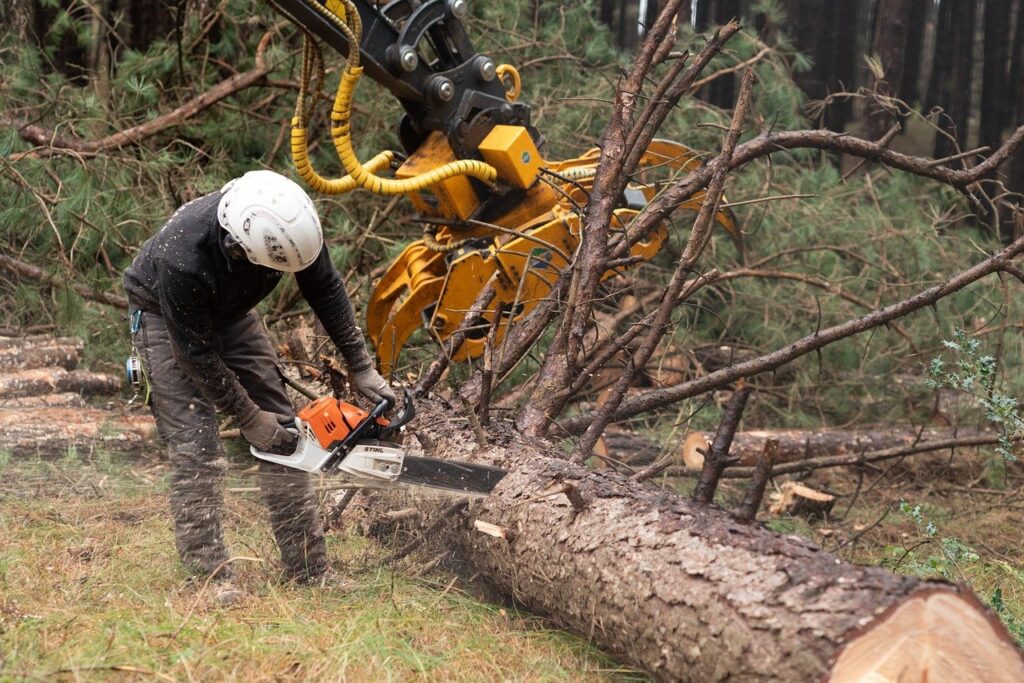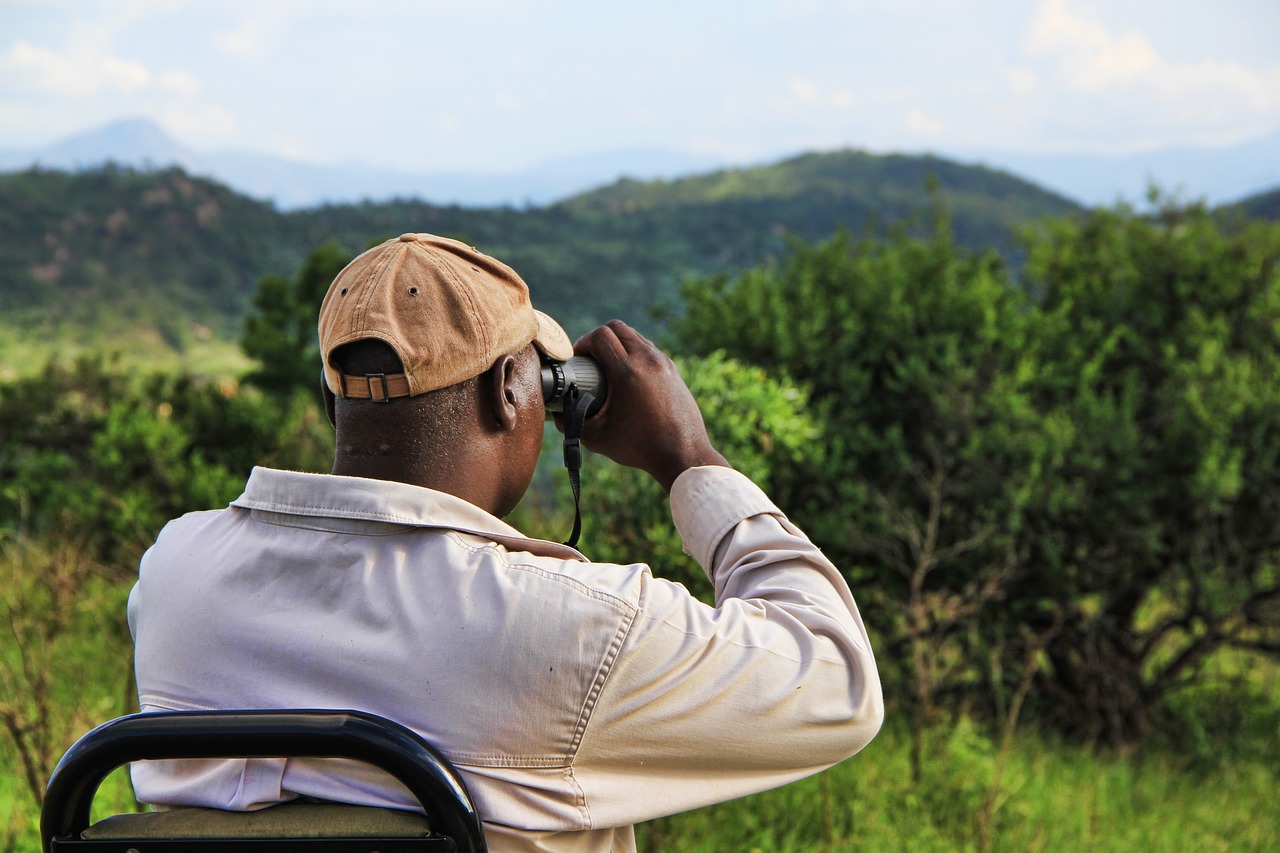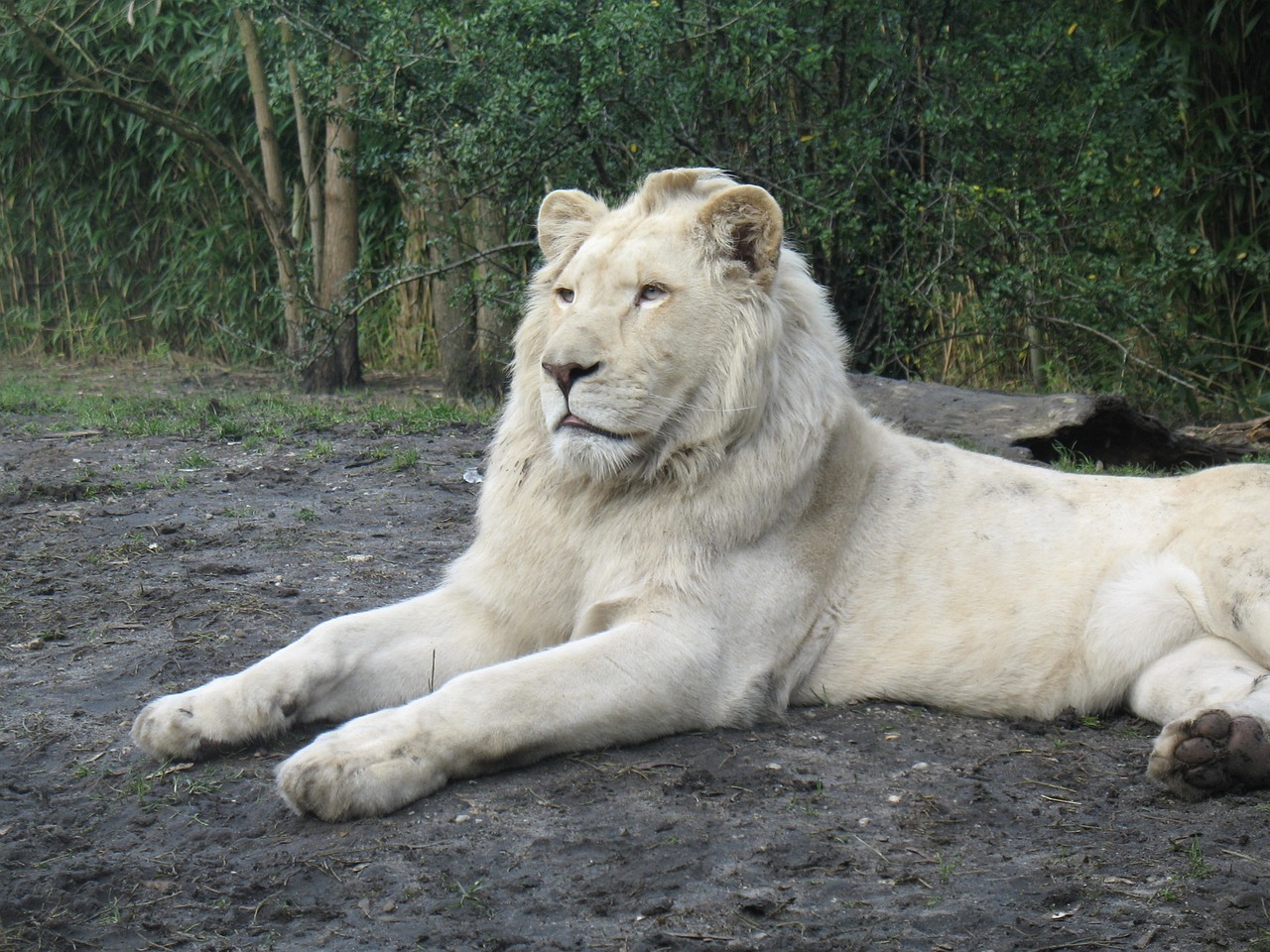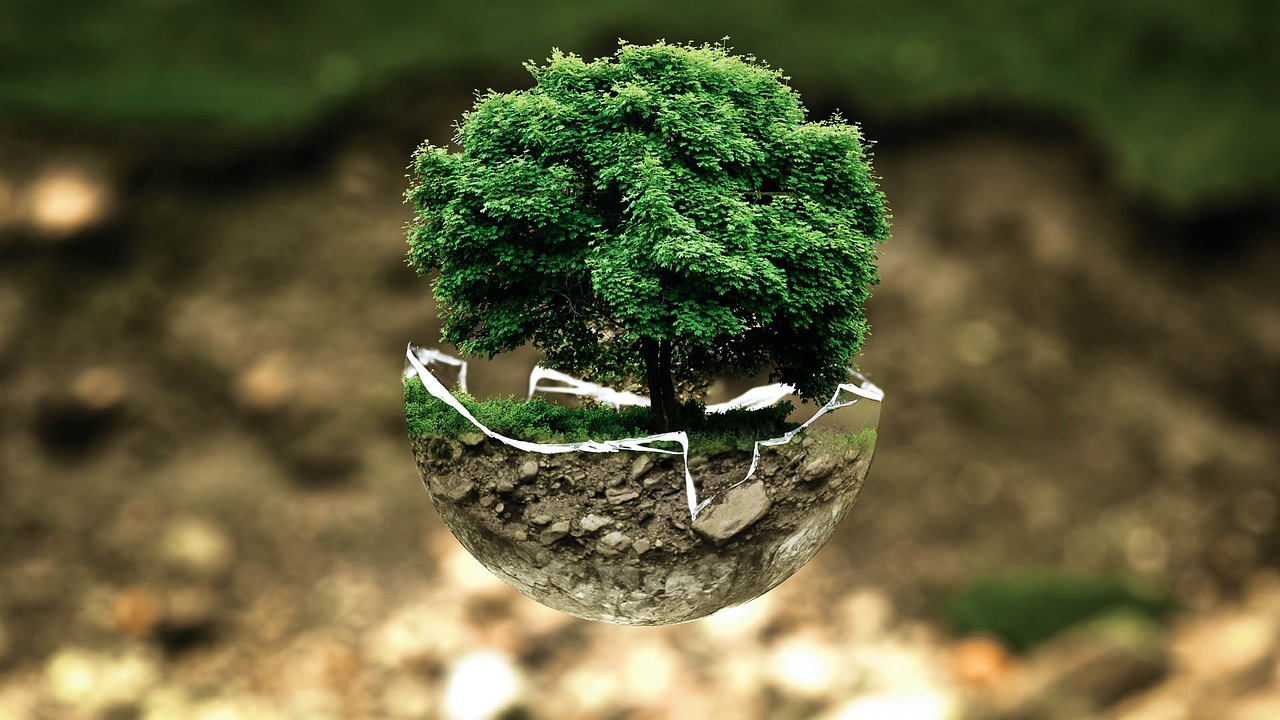
If you’re studying ecology or interested in doing so, what everyone in your university seems to talk about is a career in academia.
Get your master’s, get your Ph.D., do some post-docs, do some research, become a tenured professor one day and do what you love!
They can sometimes make it seem like this is the most common route. However, the fact of the matter is that not everyone is going to become a professor. Most people, statistically speaking, won’t even continue past their Bachelor’s degree. So what do all those people do?
Well fear not because that’s what this article will cover! Maybe you love nature, you want to work outside and you dream of saving the planet. Maybe you also want to work in a lab and analyze samples to check them for dangerous substances, harmful to the environment. Either way, what are your options?
In This Article…
- Academia
- Ecological Consulting
- Forestry
- Wildlife Conservation
- Environmental Scientist
- Biologist (Pharmaceutical Lab)
- Biotechnology
- Other
- Conclusion
Academia

So while this article does focus on options besides academia, we would be doing you a disservice if we didn’t at least cover it.
Academia is the track that your university typically best prepares you for and the one you sort of, at least, need me to discuss probably because it’s the first one that comes to mind. The thing is everyone you are exposed to during university is in that track? So you automatically have a filtered, biased view because all of your professors, your TA’s, lecturers, or research assistants usually all went the academia route. There are some exceptions to the rule, especially if you are in an Applied Ecology major or something that focuses more on industry applications, but for the most part if someone is a professor at a university, they likely do research there and publish papers and so that’s who is teaching you.
And that’s exactly what an academic career in ecology or any natural science involves – conducting research and teaching scientific theory and literature about the relationship between organisms and the environment. For example, the interactions between species, the functioning of ecosystems, and the environmental impact of human activities.
The type of positions you can expect to see are field and lab techs, internships, contract positions, research assistants, Ph.D. candidates, post-doctoral researchers, and, of course, professors, lecturers, or tutors. Your work is involved in conducting original research, then publishing your findings in scientific journals, and teaching courses in ecology and related subjects. And a lot of writing—paper writing, grant proposals to get funding, etc…
Don’t get me wrong, there’s nothing wrong with this track. I’m not trying to make it seem like this is not a good track. It’s just that probably most of you coming here already know about this track. And like I mentioned before, most of you reading this are not going to become professors (not that there’s anything wrong with that of course. If you do… then more power to you!) But I think it’s important to see that there are quite a few other options.
I have done several lab and field tech positions, I sort of did a research assistant paid internship once. I also almost got a Ph.D. at once, but at the end of the day, it’s actually very competitive and kind of based on who you know and luck and being in the right place at the right time. You also have to travel, and you have to deal with seasonal work a lot until you actually become that tenured professor that gets to do whatever they want all the time… sort of.
So let’s move on to some of the other options besides Academia.
Ecological Consulting

Ecological consultants are professionals who assess the impact of human activities on the environment and develop strategies for sustainable practices. They work across various sectors such as construction, land development, energy, and transportation. Their primary goal is to minimize environmental harm while promoting conservation.
These consultants conduct field surveys to gather data on ecosystems, wildlife habitats, and biodiversity. They analyze this information to identify potential environmental risks and provide recommendations for mitigation and preservation. They may also assess the environmental effects of proposed projects, helping companies and government agencies comply with regulations and obtain permits.
Additionally, ecological consultants may collaborate with stakeholders including government bodies, NGOs, and local communities to develop conservation plans and restoration projects. They may also offer guidance on land management practices that promote biodiversity and ecosystem health.
Ecological consultants play a crucial role in promoting environmental stewardship by assessing, mitigating, and managing the impact of human activities on the natural world. Their work helps to balance economic development with environmental conservation, ensuring a sustainable future for both people and ecosystems.
Forestry

A career in forestry offers diverse opportunities to work in a variety of settings, from remote forests to urban parks, and involves a wide range of tasks and responsibilities. Forestry professionals may start as field technicians or forest rangers, conducting field surveys, monitoring wildlife populations, and managing recreational activities. As they gain experience and expertise, they can advance to roles such as forest managers, where they develop and implement forest management plans, oversee timber harvesting operations, and ensure compliance with environmental regulations.
Others may specialize in areas such as forest ecology, conducting research on topics like tree growth patterns, ecosystem dynamics, and climate change impacts. Foresters may also work in conservation, focusing on protecting endangered species, restoring degraded ecosystems, and promoting sustainable land management practices.
Additionally, careers in forestry can involve policy development, working with government agencies, non-profit organizations, and industry stakeholders to shape forest management policies, advocate for conservation initiatives, and address environmental challenges.
A career in forestry offers the opportunity to make a tangible impact on the health and sustainability of forest ecosystems while also contributing to the well-being of communities and the economy. It requires a combination of fieldwork, scientific expertise, and collaboration with diverse stakeholders.
Wildlife Conservation

A career in wildlife conservation encompasses a wide range of roles and responsibilities aimed at protecting and preserving biodiversity and natural habitats. Professionals in this field may work in diverse settings, including field research, habitat management, policy development, education, advocacy, and even in zoos and wildlife sanctuaries.
In the field, conservationists conduct research to study wildlife populations, behaviors, and ecosystems, gathering data to inform conservation strategies. They may monitor endangered species, track migration patterns, or assess the health of ecosystems to identify threats and develop conservation plans.
Habitat management specialists work to restore and maintain natural habitats, implementing measures to improve biodiversity and mitigate human impacts such as habitat destruction and fragmentation.
Conservation policy experts advocate for wildlife protection through the development and implementation of laws, regulations, and international agreements. They work with government agencies, non-profit organizations, and research institutions to shape policies that promote conservation efforts.
In zoos and wildlife sanctuaries, conservationists play crucial roles in caring for captive and rescued animals, conducting research to improve breeding programs, and engaging with the public to raise awareness about conservation issues and inspire action.
Overall, a career in wildlife conservation offers diverse opportunities for individuals passionate about protecting and preserving the planet’s biodiversity for future generations.
Environmental Scientist

‘Environmental Scientist’ is sort of a broad term. In this article, I mean it more as someone who works for an organic or inorganic chem lab that analyzes environmental samples, but you may see it listed more like a Laboratory Technician or a Chemist position in your job search.
An environmental scientist working in such a setting often uses analytical instruments such as HPLC or GC/MS to analyze environmental samples of air, water, soil, and biota to detect and quantify various chemical compounds, including pesticides, heavy metals, organic pollutants, and toxins.
These scientists may work for government agencies, environmental consulting firms, research institutions, or industry, where they conduct routine monitoring to ensure compliance with environmental regulations and assess the effectiveness of pollution control measures.
Their responsibilities include developing and validating analytical methods, collecting and preparing samples, running chromatographic analyses, interpreting data, and preparing reports documenting their findings. They may also collaborate with interdisciplinary teams to investigate pollution sources, assess environmental risks, and develop strategies for remediation and pollution prevention.
Additionally, environmental scientists working in this role may participate in research projects to study the fate and transport of pollutants in the environment, evaluate the health impacts of exposure to contaminants, and explore innovative techniques for environmental monitoring and analysis.
Their work helps to safeguard human health and the environment by identifying and mitigating sources of pollution and ensuring the sustainability of natural resources.
Biologist (Pharmaceutical Lab)

Biologists or microbiologists working for big pharmaceutical companies play critical roles in drug discovery, development, and production processes. Their work spans various stages of pharmaceutical research, from identifying potential drug targets to ensuring the safety and efficacy of new medications.
In drug discovery, biologists and microbiologists conduct research to understand the biological mechanisms underlying diseases and identify molecular targets for therapeutic intervention. They may use techniques such as genetic engineering, cell culture, and high-throughput screening to identify and validate drug candidates.
During drug development, biologists and microbiologists collaborate with multidisciplinary teams of scientists, including chemists, pharmacologists, and toxicologists, to optimize lead compounds, assess their pharmacological properties, and evaluate their safety profiles through preclinical testing.
In drug production, biologists and microbiologists oversee the manufacturing processes for biopharmaceuticals, such as vaccines, antibodies, and recombinant proteins. They ensure that production facilities adhere to strict quality control standards and regulatory requirements to produce safe and effective medications at scale.
Additionally, biologists and microbiologists may contribute to post-market surveillance efforts, monitoring the safety and efficacy of pharmaceutical products in real-world settings and providing scientific support for regulatory submissions and compliance.
Biotechnology

Biologists in biotechnology harness the principles of biology to develop innovative technologies and products for a wide range of applications, from healthcare and agriculture to environmental remediation and industrial processes. Their work often focuses on understanding and manipulating biological systems at the molecular level to solve practical problems and improve human well-being.
In biotechnology, biologists may be involved in various areas such as genetic engineering, synthetic biology, bioinformatics, and bioprocessing. They may develop genetically modified organisms (GMOs) with enhanced traits for crop improvement or biopharmaceutical production. They could also design novel enzymes or microorganisms for industrial processes like biofuel production or waste treatment.
Unlike pharmaceuticals, which primarily focus on developing drugs for therapeutic purposes, biotechnology encompasses a broader range of applications beyond medicine. While both fields involve biologists working with molecular biology techniques, biotechnology often emphasizes the use of biological systems for industrial and commercial purposes beyond healthcare.
Overall, biologists in biotechnology contribute to the development of cutting-edge technologies and products that have far-reaching implications for various industries, from agriculture and energy to healthcare and beyond. Their work involves interdisciplinary collaboration and creative problem-solving to address complex challenges and unlock the potential of biological systems for societal benefit.
Other

Ecology graduates possess a diverse skill set that opens up various career opportunities beyond traditional environmental roles. This is why this last section, I have simply titled ‘Other’.
For example, in food science and agriculture, they may work as agricultural consultants, advising farmers on sustainable practices, crop management, and soil conservation. They could also specialize in agroecology, focusing on the ecological principles underlying agricultural systems to optimize productivity while minimizing environmental impact.
In data science and analytics, ecology graduates can leverage their analytical skills to work as environmental data analysts, interpreting large datasets to inform conservation strategies, environmental policy-making, or resource management decisions. They may also contribute to ecological modeling efforts, predicting the impacts of climate change or land use changes on ecosystems.
Ecology graduates can also pursue careers as eco-tour guides, leading educational tours in natural areas, national parks, or wildlife reserves. They may also work in environmental education and outreach, developing educational programs for schools, museums, or non-profit organizations to raise awareness about ecological conservation and sustainability.
Furthermore, ecology graduates may find opportunities in environmental journalism, science communication, or environmental advocacy, using their expertise to inform the public, influence policy, or drive social change. Overall, the versatility of an ecology degree enables graduates to pursue a wide range of rewarding careers that contribute to the conservation and sustainable management of our planet’s natural resources.
Conclusion
While academia remains a popular career path for ecology graduates, it’s essential to explore the diverse range of opportunities available beyond traditional research and teaching roles. Whether it’s ecological consulting, forestry management, wildlife conservation, environmental science, or microbiology, there are numerous avenues for ecologists to make meaningful contributions to environmental stewardship and conservation efforts. By considering alternative paths and pursuing diverse opportunities, aspiring ecologists can find fulfilling careers that align with their interests, values, and aspirations, ultimately making a positive impact on the natural world.


